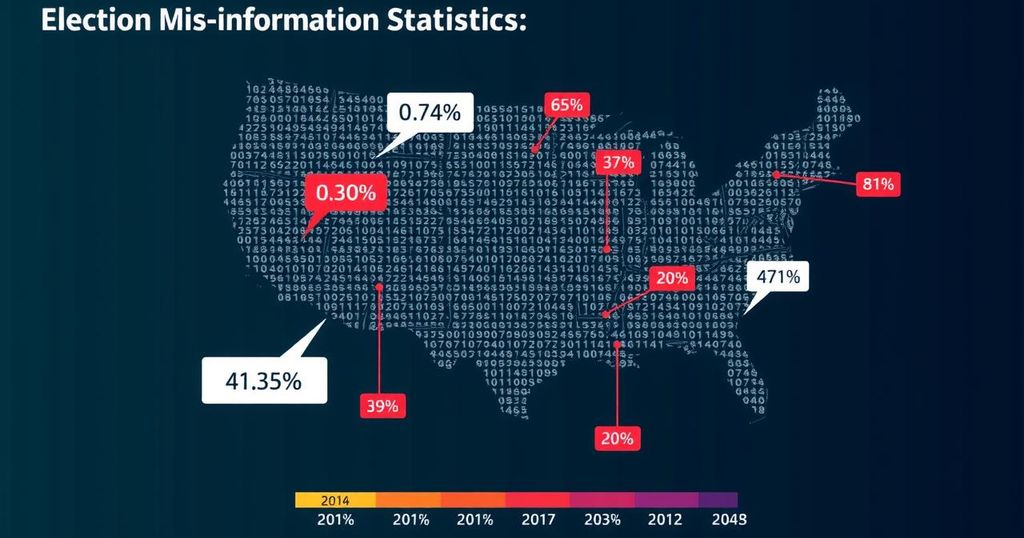Meta Reports Minimal Impact of AI Content on Election Misinformation
Meta has reported that generative AI content constituted less than 1% of election-related misinformation on its platforms in a year marked by global elections. This assessment reflects their success in managing AI-generated propaganda through robust policies and proactive content management. Meta’s actions included rejecting significant numbers of requests for deceptive imagery and dismantling covert influence networks.
At the conclusion of the year, Meta has asserted that concerns regarding the influence of generative AI on election-related misinformation were largely unfounded, stating that such content constituted less than 1% of the total misinformation on its platforms, including Facebook, Instagram, and Threads. This assessment encompasses major elections in various countries, including the United States, India, and Brazil.
In a blog post, Meta explained that while some instances of AI-generated misinformation were identified, their existing frameworks and policies were effective in mitigating potential risks. The company noted that its Imagine AI image generator successfully rejected around 590,000 requests aimed at producing deceptive imagery related to prominent political figures leading up to the elections, which highlights its commitment to preventing the creation of deepfakes.
Furthermore, Meta observed that the coordinated activities of accounts attempting to disseminate propaganda showed minimal improvement due to the use of generative AI. Importantly, the company emphasized that their efforts to dismantle covert influence campaigns were centered on the behavior of these accounts rather than the nature of their content, be it AI-generated or not.
In an effort to counter foreign interference, Meta disclosed that it had removed approximately 20 covert operations worldwide, emphasizing that many of these networks lacked genuine audience engagement and often utilized deceptive tactics such as fake likes to appear more credible. Additionally, Meta highlighted that misleading videos associated with Russian influence campaigns were predominantly disseminated on the platforms X and Telegram.
As the year concludes, Meta has pledged to continually review its policies and will announce any forthcoming changes accordingly.
The pressing concerns surrounding the potential misuse of generative AI for election manipulation became prominent earlier in the year, as stakeholders feared it could lead to increased dissemination of propaganda and disinformation. The context of these fears has centered around major democratic processes globally, accentuating the urgency for social media platforms to manage content effectively and curtail the potential for misleading narratives to reach audiences. Meta’s statement reflects a significant moment of accountability among tech companies in navigating these complex challenges during election seasons.
In summary, Meta’s analysis indicates that the role of generative AI in spreading election-related misinformation on its platforms was minimal during significant global elections. The company successfully implemented measures to counter potentially harmful content, maintaining a focus on user behavior rather than content attributes. Moving forward, Meta remains committed to assessing and refining its policies to address ongoing concerns regarding online misinformation.
Original Source: techcrunch.com




Post Comment